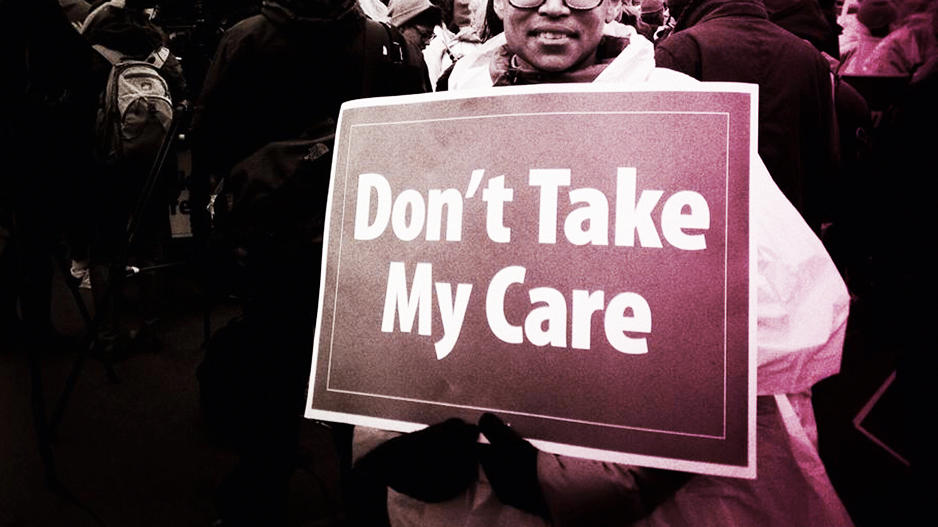Why This Obamacare Architect Is Worried
If you spent years of your life designing the Affordable Care Act, this would not be your finest week.
Bob Kocher, who is now a health investor with Venrock Capital, worked in President Obama’s White House to help shape the bill that would provide coverage to millions more Americans and prevent insurance companies from discriminating against people on the basis of pre-existing conditions. Those that architected the bill didn’t get everything right— and Kocher has been honest about that—but their hope was that the next administration would make the necessary tweaks, rather than a rip and replace.
I caught up with Kocher for his perspective on how a Republican alternative to the Affordable Care Act would fare. Here’s what he had to say, edited for brevity:
Fast Company: First off, how are you feeling today given all the talk of repealing the Affordable Care Act?
Bob Kocher: I am worried. It’s tragic to me that the term “Obamacare” has become an analogy for all democratic policies, good or bad.
Fast Company: What do you think is the most likely outcome?
Bob Kocher: I’m worried that this coming administration will work too hastily out of a desire to demonstrate that they’re accomplishing change. There might be unintended consequences that are hard to fix. Remember that it took several years to design the Affordable Care Act, and two years after that to implement it. It was rocky at times and took longer than you might think.
Fast Company: How can we ensure that a replacement wouldn’t leave the old, the poor, and the sick in the lurch?
Bob Kocher: There hasn’t been a ton of specificity so I don’t know. With Ryan’s plan, he wants to offer tax credits for everyone (to buy coverage from private insurers). That’s a nice benefit to people who are wealthier. But to make this plan not cost more than the ACA, the tax credits would have to be smaller for poor people. I don’t know how a non-income-adjusted tax credit will help the poor.
The other point here is around age discrimination: We currently have a 3-to-1 ratio of young to older members. The Republicans proposed making it a 5 or 6 to 1 ratio. In that case, you’ll double premiums for people in their 50s who needed insurance (editors’ note: Ryan’s plan would scale up the tax credits with age, but it would also allow insurers to raise premiums much more than the ACA currently allows. Its policies are also not set in stone).
Fast Company: Do you believe a full repeal-and-replace is the most likely outcome?
Bob Kocher: I don’t know. Of course, it would be tragic to disrupt it in my mind. I hope that’s not seriously being considered. Republicans have asked for a two-year window to design a replacement, which feels awfully aggressive given that Obama, with 60 Democrats in the senate, still needed two years just to test the bill after years of writing regulations. I don’t know how it could possibly go much faster on the replace.
Fast Company: Many Republicans think that the Affordable Care Act is broken, and you’ve admitted to some of its flaws. Why shouldn’t we repeal it?
Bob Kocher: All health policies require refinement over time. Just look at Medicare Advantage. It was years before it took off. With the ACA, I know we need to make it work better for many people.
Fast Company: If we don’t repeal it, what do you see as potential alternative strategies for Republicans under Trump?
Bob Kocher: They could try to get bipartisan support to make the current system work better and make symbolic changes, like the addition of a catastrophic plan. They could also amend certain parts, such as the individual mandate. Or they could ignore it and focus instead on another issue like immigration.
It would be high-risk for them to replace ACA without a comprehensive alternative health bill, which would be difficult to push through in a polarized Congress.
Fast Company: That sounds reasonable, but Trump has been notoriously unpredictable…
Kocher: Yes, he hasn’t been a politician before so there’s no track record on how he achieves consensus. We don’t know a lot, as his campaign did not substantively focus on health care reform.
Fast Company: You’re now a venture capitalist and have previously funded startups like Stride Health that take advantages of the ACA’s exchanges. How will startups fare if the ACA is repealed?
Kocher: There will be more uncertainty for the future of companies that benefitted from ACA. We’re all waiting with anticipation to understand the vision that Republicans have. But there’s no question that 22 million people that bought insurance through the exchanges will demand affordable insurance. There will be some mechanism to sell them insurance, which leads to opportunities.
Many of our companies sell to large employers, who will still have the burden for all their employees and dependents and are worried about health care costs. Employers will still be in the game as customers, and they have more market power to work with health plans to get more value.
Fast Company: Will venture capitalists continue to fund startups in an uncertain environment? Especially those that are taking advantage of the various health reforms.
Bob Kocher: I think venture capital sentiment will depend more on the overall U.S. economy and how we’re doing as a country rather than anything else. But we’ll be keeping a close eye on the actions of Trump in his first 100 days.
Fast Company: What would be the most concerning outcome for you?
Bob Kocher: If they repealed the bill and millions were left without health insurance… that would be a gambit that would be risky for any president. I think Trump might not be a policy wonk but he’s astute at how to manage public opinion. Just remember how unpopular Obama was in 2014 when a few hundred thousand people lost their health plans because they weren’t ACA-compliant. If you were to get rid of exchanges, subsidies, Medicaid, and the individual mandate, millions of people will lose insurance. That’s exponentially more (people). (Editors’ note: It’s still a matter of debate how many people really lost their insurance because of Obamacare; for starters, many gained it back through the exchanges.)
Fast Company: Any silver linings?
Bob Kocher: Yes. Now that some 95% of people have insurance, the conversation has shifted to universal coverage. And that’s true on both sides of the aisle. I’m also heartened that both Democrats and Republicans are committed to the shift from fee-for-service to value-based care, where providers are rewarded based on higher-quality interactions with patients, and not by volume.
Fast Company , Read Full Story
(24)














